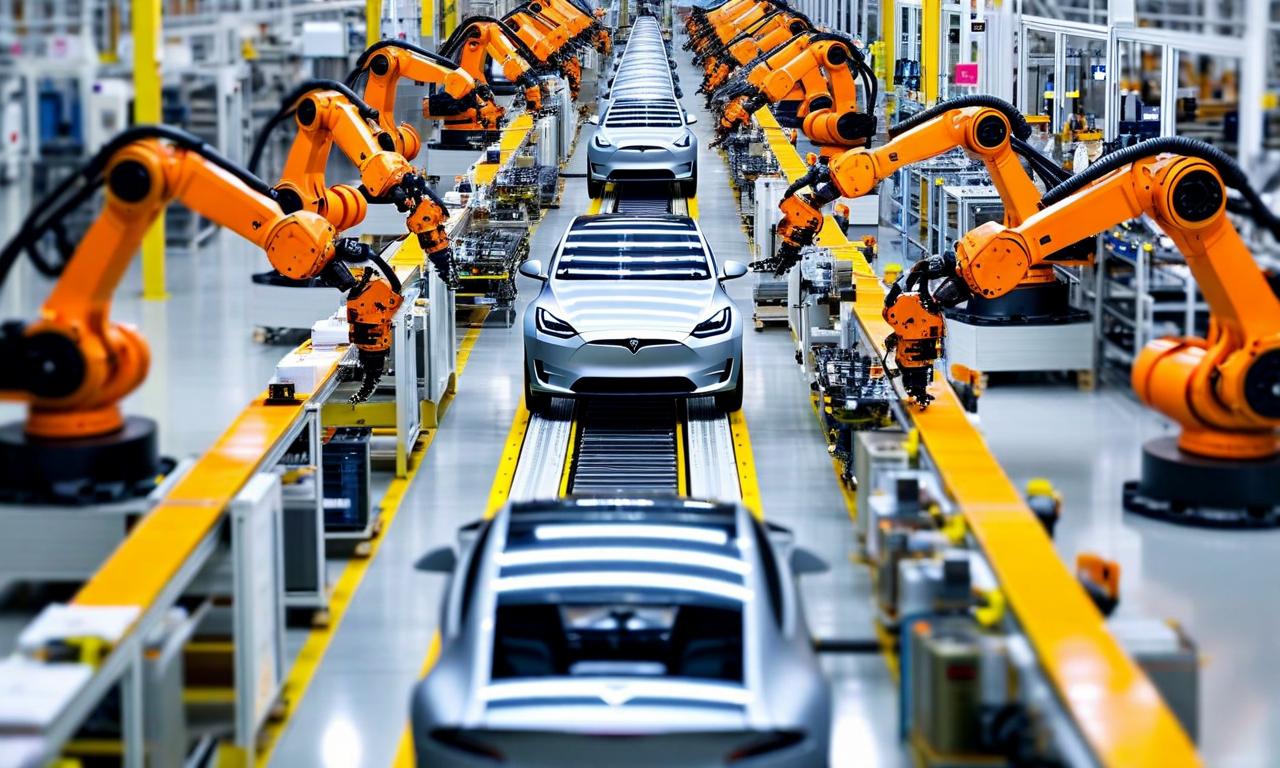BYD Shares Tumble 5% as Q2 Profit Drops 30% Amid Fierce Chinese Auto Price War
BYD, the Chinese electric vehicle manufacturer, experienced a 5% drop in share price following its first quarterly profit decline in over three years. The company reported a Q2 net profit of 6.40 billion yuan ($895.00 million), a 30% decrease year-over-year, falling short of analyst expectations. This decline is attributed to an intense price war in China's competitive EV market. Despite price cuts and allocating 1.00 billion yuan for dealer incentives, BYD's sales strategy has not yielded the desired results. The company has achieved only 45% of its ambitious 5.50 million vehicle sales target for the year, having sold 2.49 million units by July.

*this image is generated using AI for illustrative purposes only.
BYD, the Chinese electric vehicle giant, saw its shares plummet by approximately 5% following the announcement of its first quarterly profit decline in over three years. The company's financial results for the second quarter revealed a significant downturn in profitability, largely attributed to an intense price war raging in China's highly competitive automotive industry.
Profit Decline and Missed Estimates
BYD reported a net profit of 6.40 billion yuan ($895.00 million) for the second quarter, marking a substantial 30% decrease compared to the same period last year. This figure fell short of analyst expectations, which had projected profits in the range of 7-9 billion yuan.
Price War Impact and Sales Strategy
The sharp decline in profitability comes amid a fierce price war in the Chinese auto market, particularly in the electric vehicle segment. Despite implementing price cuts to stimulate sales, BYD's strategy appears to have fallen short of its intended impact. In a bid to support its dealer network, the company allocated 1.00 billion yuan in special dealer incentives during the quarter, further impacting its bottom line.
Sales Performance and Annual Targets
BYD has set an ambitious global sales target of 5.50 million vehicles for the current year. However, as of July, the company had only achieved sales of 2.49 million units, representing approximately 45% of its annual goal. This performance indicates that BYD faces significant challenges in meeting its yearly sales objectives, especially given the current market conditions.
Market Reaction
The market's response to BYD's financial results was swift and negative, with the company's shares experiencing a decline of about 5%. This reaction underscores investor concerns about the company's ability to maintain its growth trajectory and profitability in the face of intense market competition and pricing pressures.
Industry Implications
BYD's struggles highlight the broader challenges facing the Chinese automotive industry, particularly in the electric vehicle sector. As competition intensifies and profit margins come under pressure, other players in the market may also face similar hurdles in maintaining profitability while striving for market share growth.
The coming months will be crucial for BYD as it navigates the competitive landscape and works towards achieving its ambitious sales targets for the year. The company's performance will likely be closely watched by investors and industry analysts as an indicator of the overall health and direction of China's electric vehicle market.

























